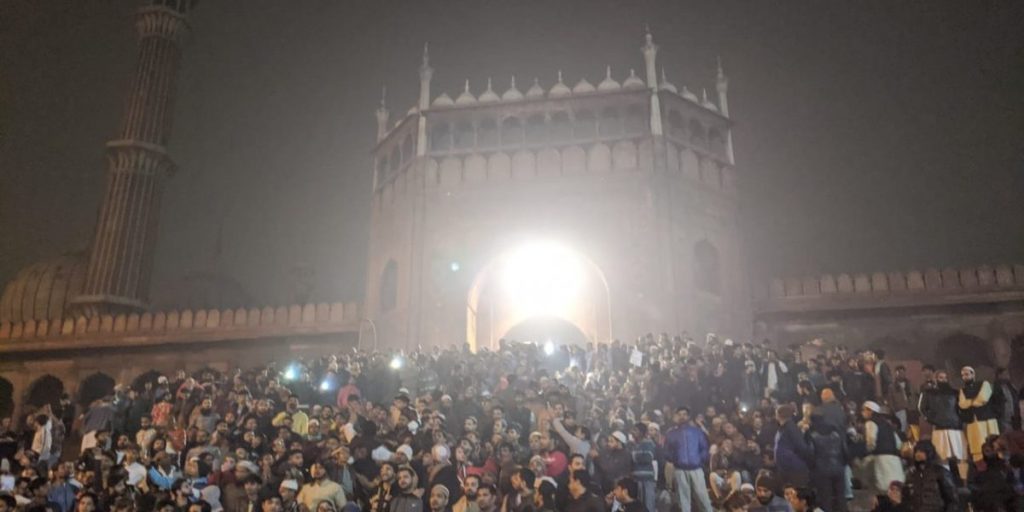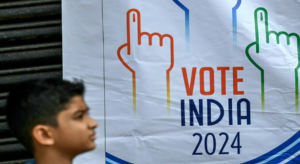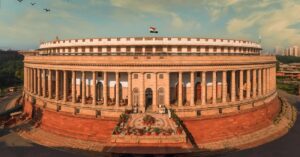Apoorvanand
‘The protests against the Citizenship (Amendment) Act at Jamia Millia Islamia and Aligarh Muslim University have given the Bharatiya Janata Party something it always wanted. Now it has become easier for them to term the opposition to the Act as sectarian, communal and essentially Muslim.’ This is the lament of many well-wishers of Muslims and critics of the CAA. Their fear is that the protests will now become a prisoner of the Hindu–Muslim binary, thereby doing a disservice to the cause itself.
The prime minister is at his vicious worst. First he said that the protestors can be identified by their clothes and then dared the Congress to declare that it would give citizenship to all Pakistanis. As happens in India, the Muslims can get easily dubbed Pakistanis and that is sufficient to delegitimise anything they say or do.
What do Muslims do then? Should Jamia and AMU have kept silent, or the protestors of Seelampur or Purnia kept themselves confined to their daily chores since their ‘visibility’ would weaken the argument against the CAA? Whenever the ‘Muslimness’ of the protest gets pronounced, a fear grips their well-wishers that the movement will ultimately fall in the hands of the orthodox, retrograde Muslim leadership and get ghettoised.
There were stray instances of violence. But we witnessed violence in Assam too. Why is it that the Assam violence, even if unacceptable, does not arouse as much concern? Why is it that a senior central minister immediately invoked the spectre of Jihad after the protest at Jamia and AMU?
Who would deny that the Muslims have genuine anxieties after the enactment of the CAA. It isolates them by omitting their religion from the text of the Act. It is only for the Muslims to feel this loneliness.
When they come out on the streets, they lay their claim over their nation, India. They act as citizens. They are not making any sectarian demand. They are only emphasising that they have equal rights in India. Not only that but also that Muslimness is as naturally Indian as Hinduness. The CAA makes a contrary argument. If non-Muslims have a right to enter and enjoy the hospitality of India, Muslims also have the same rights. The Muslims of India are making this point by criticising the Act though their protests.
Muslims are often advised to be secular and work under secular leadership. This is a strange argument. No secular party thought it necessary (if you leave the Trinamool Congress, which is treated as more Muslim than Muslims themselves, aside) to mobilise people or public opinion against the Act. The students of these two universities came out and they included non-Muslims as well.
Muslims waited for the secular parties to take a stand on the injustice inbuilt in the Ayodhya judgment. They were disappointed. The secular parties vied with each other to look more Hindu. The outcome of the case was not seen as communal or sectarian but an ‘acknowledgment of the sentiments of the people of India’.
The Ayodhya judgment was a precursor to the CAA. Treating the Hindu claim, even if without any evidence, as weightier than the Muslim claim created a hierarchy in which Muslims were inferior. The CAA does the same. Are Muslims wrong in feeling that this is an attempt to further marginalise them in the project of nation making?
If the secular political class is reluctant to give voice to this anxiety of Muslims, what are they supposed to do? They did not come out when individual Muslims were being killed. They did not come out when the top leadership of the country was demonising them. No secular party spoke out firmly against the vilification of Jamia and the AMU in these past six years. No secular party spoke out when Muslims were pushed out of the mixed localities by the use of the Disturbed Areas Act in Baroda.
It did not disturb the political class when the Muslimness of India was being erased bit by bit. The process started long back. As early as 1949, Indira Gandhi had noticed it when she wrote to Nehru:
“I hope Farrukhabad was not too dusty and tiring. I hear Tandonji wants to change its name and that of every town which ends in ‘bad’ into ‘nagar’. If this sort of thing goes on much longer I shall be provoked into calling myself ‘Zohra Begum’ or some such thing!”
That sort of clarity and resolve have gone, even in her party. The Hinduisation of India is seen as natural.
The Muslims have long borne the burden of partition. Seventy years have passed and new generations of Muslims are still asked to account for it. They are reminded of the wounds that the Hindus and Sikhs carry, displaced from their homes, but we never talk about the massacre of Muslims in what is now India! Do Muslims who decided to live in India despite witnessing this atrocity still need to give repeated tests of loyalty to India?
Muslims tied their fate with the secular polity of India. But they were never accepted as worthy of representing the collective will of India. Muslim leaders are destined to remain only Muslim leaders, like the dalit leaders who are never recognised as universal voices.
It is not for the Muslims to ensure that they do not get ghettoised. As it is not for dalits to not be special. Remember, the April 2 protest called by them in 2018 did not see the participation of the Caste Hindus. The dalit anxiety was not imaginary. But it was not shared by the non-dalits.
Dalits are in a far better situation than the Muslims because they are never called sectarian when they protest as dalits. Political parties compete with each other to be on their side. Muslims have no such luck.
This time, Muslims have decided to say that they reject their marginalisation. That their language should be considered as representative and as democratic and as Indian as any other.
Muslims have nothing to prove to India. This time it is for the rest of us non-Muslims to stand by India’s Muslims and prove to them that we qualify as co-citizens. After all what is a citizen if not the Vaishnav Jan of the old man? And how can one be a Vaishnav Jan without sharing and knowing the pain of others? The Muslims’ pain must be allowed the dignity of speaking for itself; others should prove their humanity by walking alongside them.
(The writer teaches at Delhi University.)




